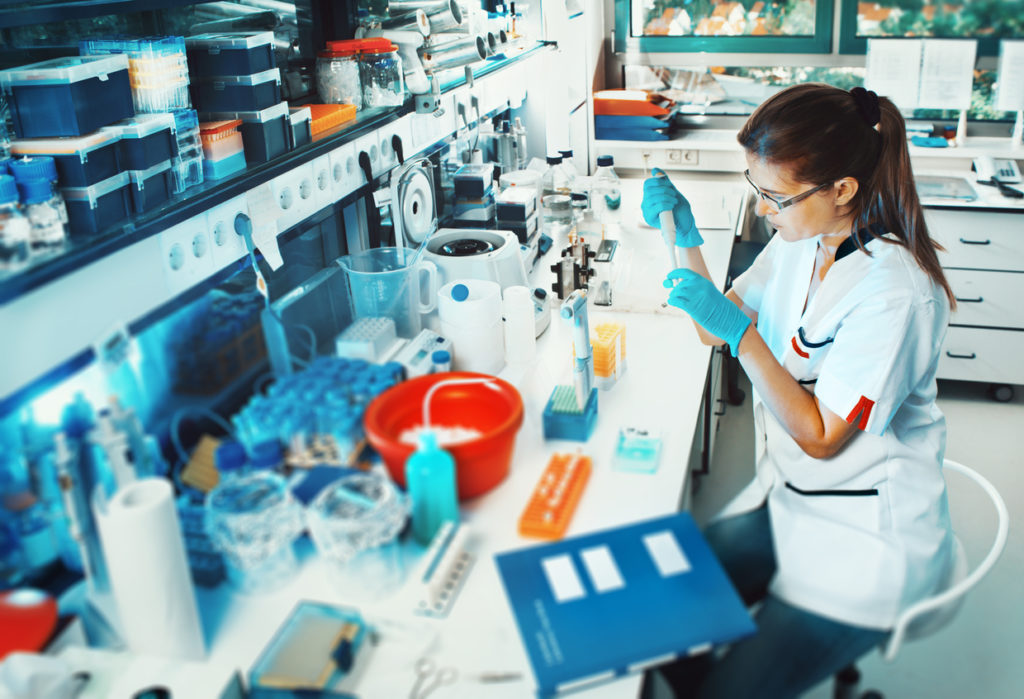
Biotechnology is an interdisciplinary field that involves the use of living organisms, biological systems, and technology to develop products and processes that improve human life, agriculture, environment, and industry. It integrates knowledge from biology, chemistry, physics, engineering, and computer science to manipulate biological systems for practical applications. Biotechnology has numerous subfields, including medical biotechnology, agricultural biotechnology, industrial biotechnology, and environmental biotechnology.
Course Overview
A biotechnology course provides students with a comprehensive understanding of the biological sciences, combined with technical skills in biotechnology and related technologies. The curriculum typically covers a wide range of topics, from molecular biology and genetics to bioinformatics and bioprocess engineering. Students learn how to apply biotechnological methods to solve problems in medicine, agriculture, and industry.
Key Areas of Study
-
Molecular Biology and Genetics
- Study of the molecular basis of biological activity in cells.
- Topics: DNA, RNA, and protein synthesis; genetic engineering; gene expression; genetic modification and gene therapy.
-
Microbiology and Immunology
- Study of microorganisms and the immune system.
- Topics: Bacteria, viruses, fungi, and parasites; microbial genetics; immunological techniques; vaccine development.
-
Biochemistry and Biophysics
- Study of the chemical processes and physical principles in living organisms.
- Topics: Enzymes, metabolism, molecular interactions, structural biology, and spectroscopy.
-
Bioprocess Engineering
- Application of engineering principles to biological processes.
- Topics: Fermentation technology, bioreactor design, upstream and downstream processing, and bioseparation techniques.
-
Bioinformatics and Computational Biology
- Use of computational tools to analyze and interpret biological data.
- Topics: Genomics, proteomics, sequence analysis, molecular modeling, and systems biology.
-
Cell and Tissue Culture
- Techniques for growing cells and tissues in controlled environments.
- Topics: Cell culture techniques, tissue engineering, stem cell biology, and organoids.
-
Agricultural Biotechnology
- Application of biotechnology in agriculture to improve crop yield and resistance.
- Topics: Genetic modification of plants, plant breeding, biofertilizers, and biopesticides.
-
Environmental Biotechnology
- Use of biotechnology to address environmental issues.
- Topics: Bioremediation, waste management, bioenergy production, and environmental monitoring.
-
Medical Biotechnology
- Application of biotechnology in medicine for diagnostics and treatment.
- Topics: Drug development, personalized medicine, diagnostic tools, and regenerative medicine.
Course Structure
A typical biotechnology course is structured over several years, starting with foundational courses in the biological and physical sciences, followed by specialized courses in biotechnology. The curriculum may include:
-
Foundation Courses
- Mathematics: Calculus, statistics, bioinformatics algorithms.
- Chemistry: General chemistry, organic chemistry, biochemistry.
- Biology: Cell biology, molecular biology, genetics.
- Physics: Basic physics, biophysics.
-
Core Biotechnology Courses
- Introduction to biotechnology
- Molecular biology techniques
- Genetic engineering and recombinant DNA technology
- Bioprocess technology and fermentation
- Bioinformatics and computational biology
-
Laboratory and Practical Work
- Hands-on experience in labs, including molecular biology techniques, cell culture, and bioinformatics analysis.
-
Projects and Internships
- Capstone projects, internships in biotechnology companies, research institutions, or agricultural firms.
-
Elective Courses
- Students can choose electives based on their interests, such as synthetic biology, nanobiotechnology, or biotechnology ethics.
-
Interdisciplinary Studies
- Integration of knowledge from fields such as bioengineering, pharmacology, and environmental science.
Career Opportunities
Graduates in biotechnology can pursue a variety of careers, including:
- Biotechnologist: Working in research and development, manufacturing, or quality control in biotechnology firms.
- Genetic Engineer: Developing genetically modified organisms (GMOs) for agriculture, medicine, or industry.
- Bioinformatics Specialist: Analyzing biological data using computational tools and software.
- Pharmaceutical Scientist: Developing new drugs and therapies using biotechnological methods.
- Clinical Research Associate: Conducting clinical trials and research studies in medical and pharmaceutical fields.
- Environmental Biotechnologist: Applying biotechnology to solve environmental issues, such as pollution and waste management.
- Regulatory Affairs Specialist: Ensuring compliance with regulations and standards in biotechnology and pharmaceutical industries.
- Academic and Teaching: Educating future biotechnologists and conducting research in academia.
Top Institutions Offering Biotechnology
Many universities worldwide offer high-quality biotechnology programs. Some of the top institutions include:
- Massachusetts Institute of Technology (MIT), USA
- Harvard University, USA
- Stanford University, USA
- University of Cambridge, UK
- University of California, San Francisco (UCSF), USA
- Johns Hopkins University, USA
- ETH Zurich, Switzerland
- University of Tokyo, Japan
- National University of Singapore (NUS), Singapore
- Indian Institute of Technology (IIT), India
Conclusion
Biotechnology is a rapidly growing field that offers numerous opportunities to make significant contributions to various industries, including healthcare, agriculture, and environmental management. The field requires a strong foundation in the biological sciences and an understanding of the latest biotechnological techniques and tools. Graduates are well-equipped to work in diverse sectors, from research and development to regulatory affairs, and play a crucial role in advancing technologies that improve human health and the environment.
